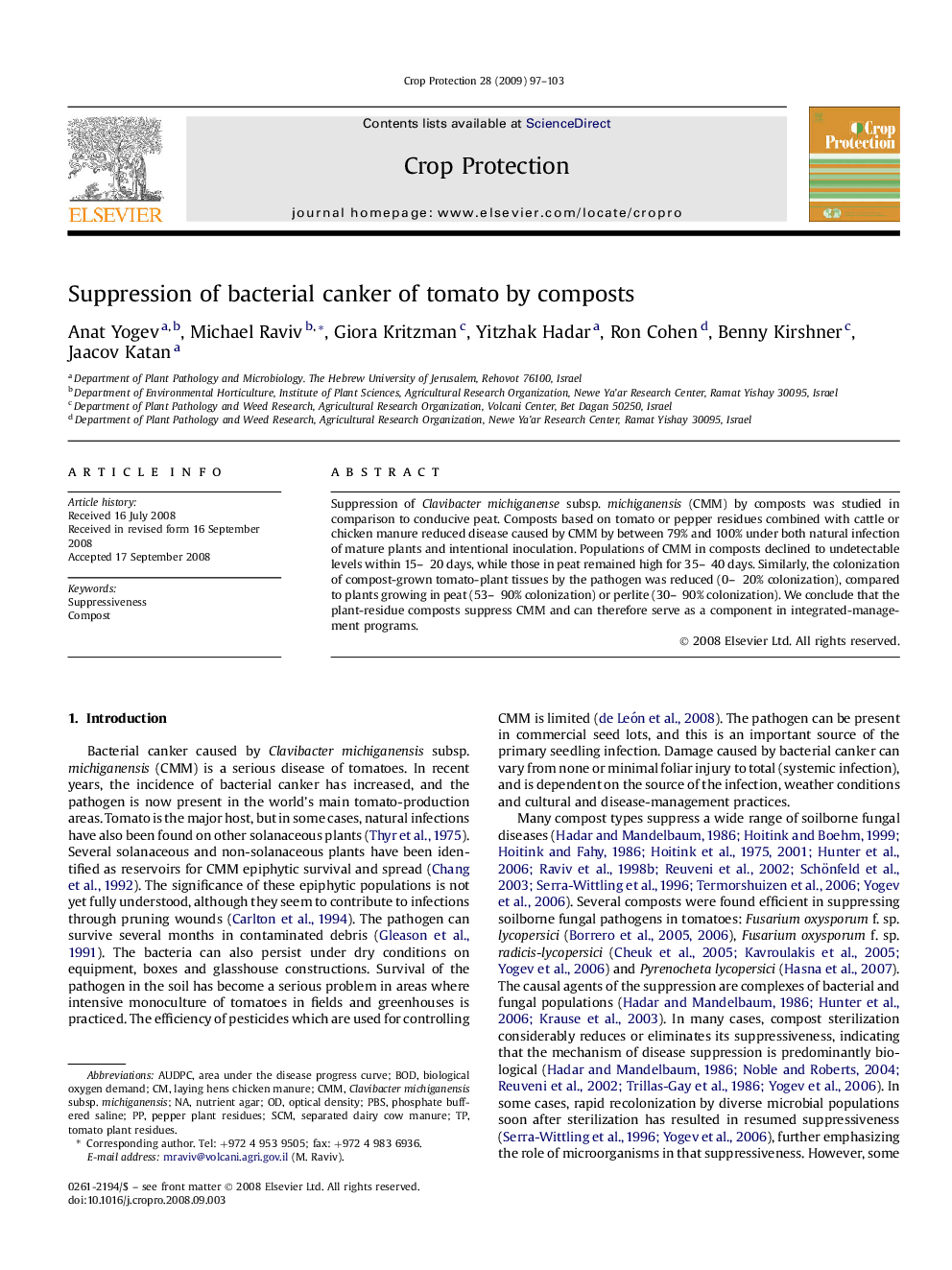| Article ID | Journal | Published Year | Pages | File Type |
|---|---|---|---|---|
| 4507554 | Crop Protection | 2009 | 7 Pages |
Suppression of Clavibacter michiganense subsp. michiganensis (CMM) by composts was studied in comparison to conducive peat. Composts based on tomato or pepper residues combined with cattle or chicken manure reduced disease caused by CMM by between 79% and 100% under both natural infection of mature plants and intentional inoculation. Populations of CMM in composts declined to undetectable levels within 15– 20 days, while those in peat remained high for 35– 40 days. Similarly, the colonization of compost-grown tomato-plant tissues by the pathogen was reduced (0– 20% colonization), compared to plants growing in peat (53– 90% colonization) or perlite (30– 90% colonization). We conclude that the plant-residue composts suppress CMM and can therefore serve as a component in integrated-management programs.
